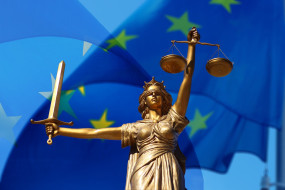TikTok is facing a significant fine over its processing of children's data following a decision by the European Data Protection Board (EDPB). Ireland's Data Protection Commission (DPC) launched an own-volition inquiry into TikTok's processing of personal data of registered users between the ages of
Privacy
The Circuit Court has awarded €2,000 to an employee for non-material damage arising from a data breach by his employer. The plaintiff was identifiable in a training video relating to unacceptable work standards which was seen by management. Delivering judgment in the case, His Honour Judge John
The Department of Health has been fined after unlawfully using private information about plaintiffs and their families in special educational needs litigation to decide whether to propose settlements. The Data Protection Commission (DPC) this week imposed a €22,500 fine on the Department after
Proposed new garda powers to track vehicles using automatic number plate recognition (ANPR) technology should be subject to judicial oversight, the Irish Council for Civil Liberties (ICCL) and Digital Rights Ireland have said. The NGOs have sent legislators a list of proposed amendments to the An Ga
Meta's new social media app Threads, widely seen as a rival to Twitter, has been launched in the US and the UK but is not yet available in Ireland or the rest of the EU due to regulatory concerns. Threads, a text-based spin-off from Instagram, is now available in more than 100 countries — but
Data protection law does not stand in the way of sharing information about individuals' criminal convictions in circumstances where it is necessary to protect other people, the Data Protection Commission (DPC) has clarified. The DPC this week issued a statement following recent reports about a convi
Ireland's new mass surveillance regime is "certain" to be challenged in the European courts, a leading digital rights expert has said after the government confirmed it has obtained a High Court order requiring telecom providers to retain data for the next 12 months. The Communications (Retention of
The Law Society of England and Wales has urged the UK government not to diverge from the EU's nascent regulatory regime for artificial intelligence. In its response to a government white paper published in March, the Law Society calls on the UK to align with the EU, which is working towards a bindin
The Irish Council for Civil Liberties (ICCL) has accused the government of seeking to "muzzle critics" of the Data Protection Commission (DPC) through new legislative proposals. A proposed amendment to the Courts and Civil Law (Miscellaneous Provisions) Bill 2022 would allow the DPC to direct indivi
A standalone bill allowing for the use of facial recognition technology (FRT) by An Garda Síochána will be brought forward later in the year, the government has announced. The Garda Síochána (Recording Devices) Bill 2022, which is currently before the Dáil and will
The EU has moved significantly closer to adopting laws regulating artificial intelligence in a move welcomed by civil liberties campaigners. The European Parliament has approved regulations meant to set a worldwide benchmark for the technology, which covers a broad spectrum from automated medical di
Legislation allowing for the general and indiscriminate retention of communications traffic and location data on national security grounds, subject to judicial approval, is to come into force. Having returned from maternity leave, justice minister Helen McEntee yesterday signed a commencement order
Three out of four Irish organisations have seen an increased number of reported data breaches since 2018, according to a new survey by business law firm Mason Hayes & Curran. The firm surveyed attendees at its recent ' Data Privacy In-House Counsel Masterclass' event, which took place at The Mar
A record €1.2 billion fine is to be imposed on Facebook owner Meta following GDPR breaches related to personal data transfers between the EU/EEA and the US.
Ireland is continuing to act as an "enforcement bottleneck" for the GDPR, the Irish Council for Civil Liberties (ICCL) has said. In a new report published today, ICCL said Ireland's Data Protection Commission (DPC) is failing to enforce the GDPR against Big Tech despite an increase in resources.























